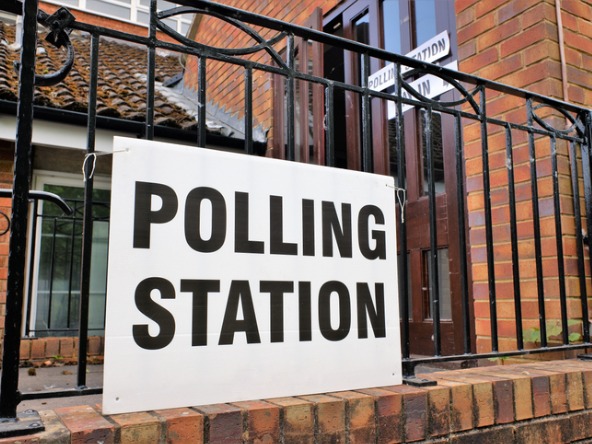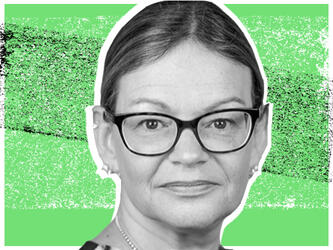‘This is a problem for democracy, not just individual parties’

Hosted by the International Journal of Market Research (IJMR), the speakers at the event were Professor Paul Baines, professor of political marketing and head of executive education at Leicester School of Business, and Professor Jennifer Lees-Marshment, professor of political marketing and management at the University of Dundee.
The presentations explored the connection between market research and effective political marketing, and underlined the importance of undertaking research not just in the lead-up to elections. “Once in power, they need to understand what voters want from a future government,” said Lees-Marshment, “It’s not just about the sentiment towards politicians and parties.”
Baines pointed out that the use of market research in politics is often driven by individuals who understand its value, notable examples being the impact of Philip Gould on the Tony Blair-era Labour party, and the former MRS president and UK prime minister Harold Wilson, who was a committed statistician.
More recent examples of market research in political marketing include during the landslide victory for Labour in the New Zealand election in 2020 and policy making under former Canadian prime minister Justin Trudeau. “But something seems to have changed in the last few years,” said Lees-Marshment. “Market research was being used in varied and complex ways up until 2020.”
The shift has been towards short-term opinion polling rather than long-term strategic policy-making, and a tendency within some quarters to distrust ‘experts'.
Lees-Marshment said: “Over the many elections of the last two years, there’s been extreme volatility and voter discontent which suggests something isn’t working, and it could be the way market research is being used, or otherwise.”
Lees-Marshment pointed to Labour’s pre- and post-election performance in the UK in 2024 as a clear example. “At the beginning of the last cycle Labour were clearly listening and doing research because their top five missions corresponded with public opinion, and then it changed. I don’t know what happened, maybe they planned to respond and the election day was brought forward and stopped it. It’s like they stopped thinking.”
This raises questions: Is the relationship between politicians and pollsters what it once was? Are politicians listening, or simply reacting to short-term shifts in opinion? Are voters being heard?
Lees-Marshment cited research from Canada which identified a new sense of insecurity, where public concern has shifted from ‘scarcity to precarity’, highlighting the example of Donald Trump in the US. “Voters can’t do the basics in life, and Trump has jumped on that. Is it really about immigration, or is it about precarity – are we trying to understand voters?”
This volatility is especially visible in the disengagement of 18 to 30-year-olds from the political process, culminating in declining voter turnout. Baines, also a local politician, believes young people are “almost ignored”. Baines referenced research from the Electoral Commission which found that many young people don’t feel confident about voting or understand the political system, in spite of being interested in politics.
Research shows that young people will connect with campaign messages that demonstrate shared values; are inclusive and empowering; and that encourage young people to believe they can effect change.
“This all seems quite obvious,” said Baines. “But if it’s so obvious why aren’t parties doing it? It’s an area that’s really neglected and we should be researching much more.”
This lack of understanding of the electorate and the focus on short-term headline-grabbing political statements is a breakdown in the role of the politician, and more fundamentally a threat to democracy. “Part of the problem is we don’t have solutions,” said Baines. “I’m a bit worried that we’re in a period of history similar to the 1930s where we’ve got fantasy as policy. We’re in a really volatile period because of what’s happening in the world and it’s the parties’ job to identify policies and solutions to some of these problems, and they’re not doing it.”
YouGov research showed that in the UK elections in 2024, a high volume of votes were negatively cast against parties, rather than for them. This suggests the public no longer trusts politicians to do the job of reflecting the concerns of their constituents.
“That basic marketing principle of doing research and creating a product in response to voters – they’re not doing that in politics at the moment. That’s not just the UK, it’s the US as well; there’s something missing there,” said Lees-Marshment. Labour’s campaign, she noted, focused on criticising the Conservatives without offering alternatives. “This is a problem for democracy, not just individual parties – you’ve got to give people a reason to turnout.”
Baines also highlighted the role of funding. With only a few million pounds spent on research in the UK during the election cycle, the temptation is to spend budget on short-term fixes – digital marketing and communicating – rather than understanding voters.
“In Britain we don’t have a political marketing industry like in the US. The British general election was done and dusted in £60m probably, whereas it’s billions in the US. Only 5% of that will be spent on market research.”
By chasing short-term sentiment, parties risk campaigning on issues that don’t affect voting. “You need to look for something that you’ve got to lead, but it also needs to link to their vote,” said Baines.
To be innovative with policy design, Lees-Marshment said, parties need both the funding for market research, and the time to think strategically. At the same time, this must be balanced with a new need to be more agile in developing policies that respond to shifting geopolitical realities and emerging issues.
Lees-Marshment concluded: “It’s hard, but the job of the politician is to find their way through all this – they need to come up with something that is visionary, and that they can actually deliver.”

We hope you enjoyed this article.
Research Live is published by MRS.
The Market Research Society (MRS) exists to promote and protect the research sector, showcasing how research delivers impact for businesses and government.
Members of MRS enjoy many benefits including tailoured policy guidance, discounts on training and conferences, and access to member-only content.
For example, there's an archive of winning case studies from over a decade of MRS Awards.
Find out more about the benefits of joining MRS here.












0 Comments